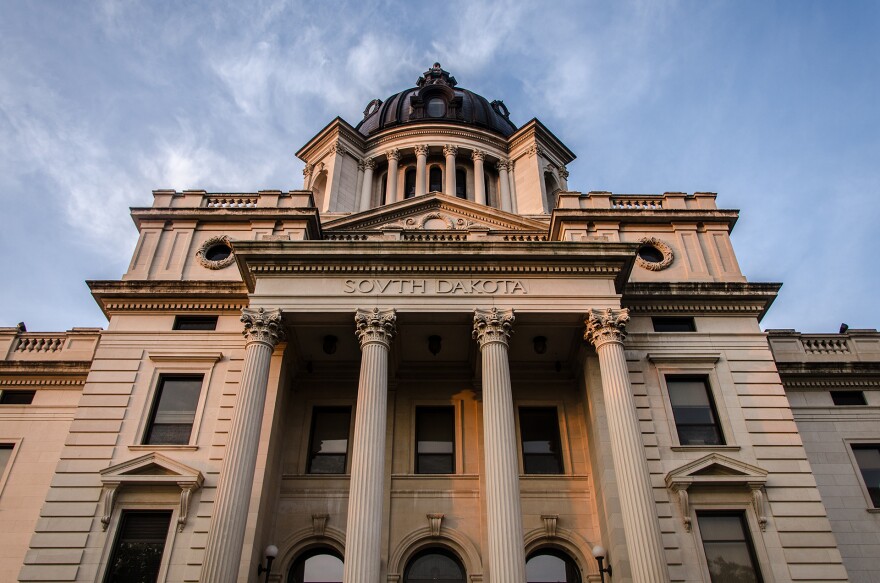Liz Tiger can’t wait for South Dakota’s medical marijuana program.
The 40-year-old Spearfish resident has stage four endometriosis. She also has a connective tissue disease and another condition that affects her soft tissue and her organs.
“It definitely ends your life early,” Tiger says. “But, with treatment I’m looking at a much better prognosis.”
Tiger says medical cannabis helps with the chronic pain she experiences.
She has worked with New Approach South Dakota for years to put a medical cannabis program on the ballot. Last year, 70 percent of South Dakota residents voted 'yes' on the ballot measure. The state Department of Health will start issuing medical cards for approved patients on November 18.
“I can’t help but think about all the people that aren’t here that were here in the beginning and how this could have been such a life changing thing for them,” Tiger says. “But it makes me very excited and hopeful for all the people that are still here that can be helped through this program.”
Medical cards will cost patients $75, with a $20 cost for qualifying low-income patients. Those fees are meant to cover the cost of the medical program. The Legislative Research Council estimated a medical marijuana program would cost the state $677,309 initially. To date, the Department of Health has spent $510,134.
However, there are already efforts to get rid of the program.
One joint legislative subcommittee—dominated by house Republicans— is working on a bill that scrubs the medical program altogether.
Republican Representative Mike Derby says the subcommittee’s plan would still provide medical cannabis for patients under 21.
“When you look at other states the medical was able to roll out first and created a business model for that,” Derby says. “The other states, when adult use was passed, the medical side of the business almost went away.”
Colorado’s medical cannabis market saw a change when the state approved recreational marijuana. That state lost nearly 40,000 medical cannabis patients when recreational pot became legal in 2014.
“If you can have access to a dispensary for adult use, then why have a duplication of rules and regulations run by two different departments?” Derby says.
Last November, South Dakota voters overwhelmingly approved a medical marijuana program the subcommittee wants to strike. Another ballot measure approved placing medical and recreational pot protections into the state constitution. That amendment is held up in the courts.
Derby says the subcommittee’s bill honors what South Dakotans want – legal cannabis.
“We want to make sure it’s licensed, that it’s tested, keep it out of the hands of children, that there’s a taxation mechanism,” Derby says. “By having it go toward the adult use side, there’s an excise tax. There’s a taxation method that’s not there with medical [cannabis].”
Cannabis supporters say medical marijuana should not be taxed.
Matthew Schweich is with South Dakotans for Better Marijuana Laws.
“And as a matter of principle, we think that medical marijuana patients should not pay tax and that it’s understandable there would be a tax on recreational sales that should be a reasonable tax,” Schweich says.
That’s because those who qualify for medical cannabis deal with chronic illness and disabilities.
Spearfish resident Liz Tiger says medical bills are already tough for those with medical challenges.
“Frequently, those folks are not high-income earners due to their medical conditions,” Tiger says. “That’s one concern I have, seeing those prices go up for folks that really, it would be a hardship to meet that cost.”
Tiger also says the varieties medical cannabis patients choose are not always popular for the recreational market.
“Not everybody who is a medical patient—who would be using medical cannabis—wants to smoke or inhale,” Tiger says. “In fact, quite a few would be looking for things like topicals, or even as far as suppositories and things of that nature.”
There’s still support in the state Senate to keep the medical marijuana program in place. The joint subcommittee’s bill to kill the medical marijuana program still must make it out of a study committee before going to the legislature next year.


